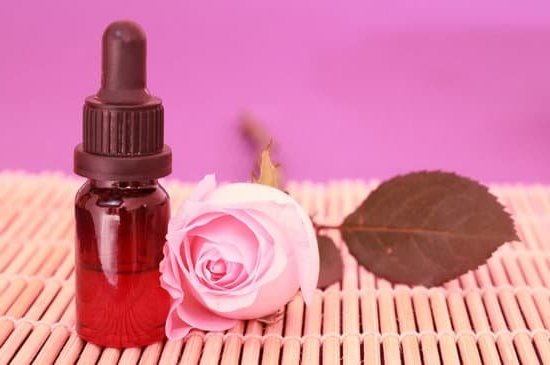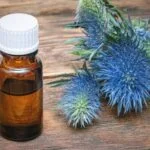Aromatherapy has been used for centuries as a natural way to promote health and well-being, and it is gaining popularity in the realm of baby care. Many parents are turning to aromatherapy oils to help soothe their babies, from promoting relaxation during bedtime to relieving symptoms of common ailments. One common question that arises is: what aromatherapy oils are safe for babies?
When it comes to using essential oils on babies, safety is paramount. Not all essential oils are suitable for the delicate skin and sensitive systems of infants, so it’s important to do your research and consult with a healthcare professional before incorporating them into your baby’s routine. By following proper guidelines and choosing the right oils, aromatherapy can provide a gentle and effective way to support your baby’s health.
In this article, we will explore the benefits of aromatherapy for babies, discuss safety guidelines for using essential oils on infants, and highlight some of the top safe aromatherapy oils for babies. From calming lavender oil to soothing chamomile oil and antiseptic tea tree oil, there are plenty of options to help you integrate aromatherapy safely into your baby’s daily care routine.
Benefits of Aromatherapy for Babies
Aromatherapy for babies can offer numerous benefits beyond just a pleasant fragrance. When used appropriately, aromatherapy oils can help soothe infants, promote better sleep, alleviate symptoms of common ailments, and even aid in their overall development. The gentle nature of certain essential oils makes them a safe and effective option for incorporating into your baby’s routine.
One of the key benefits of using aromatherapy for babies is its calming effect on little ones. Certain essential oils like lavender and chamomile have soothing properties that can help relax babies, especially during stressful moments or bedtime routines. These oils can create a peaceful atmosphere that promotes relaxation and reduces irritability in infants.
In addition to providing emotional support, aromatherapy oils can also help address physical discomforts commonly experienced by babies. Essential oils like chamomile and tea tree oil have antiseptic properties that can aid in relieving skin irritations or minor cuts. They can also be used to alleviate congestion or discomfort caused by teething.
When choosing aromatherapy oils for your baby, it is crucial to prioritize safety and select only those that are deemed safe for use on infants. Consulting with a healthcare professional or aromatherapist knowledgeable about what aromatherapy oils are safe for babies is recommended to ensure the well-being of your little one.
| Essential Oil | Safety Information |
|---|---|
| Lavender | Gentle and soothing, may aid in promoting better sleep |
| Chamomile | Mild and calming, suitable for alleviating irritability |
| Tea Tree | Antiseptic properties can help with skin issues or congestion |
Safety Guidelines for Using Aromatherapy Oils on Babies
Understanding the Importance of Safety Guidelines
When it comes to using aromatherapy oils on babies, safety should always be the top priority. Babies have delicate skin and developing respiratory systems, which make them more sensitive to essential oils. It is crucial to follow strict safety guidelines to ensure that the use of aromatherapy oils is beneficial and not harmful to your little one. Always consult with a pediatrician or a qualified aromatherapist before introducing any essential oils to your baby’s routine.
Dilution and Dosage Recommendations
One of the key safety guidelines when using aromatherapy oils on babies is proper dilution. Essential oils are highly concentrated substances that can cause irritation or adverse reactions if not diluted correctly. It is recommended to dilute essential oils in a carrier oil, such as coconut oil or sweet almond oil, before applying them to the baby’s skin.
Additionally, dosage recommendations for babies are significantly lower compared to adults. Always err on the side of caution and use minimal amounts of essential oils when it comes to babies.
Performing Patch Tests and Monitoring Reactions
Before using any new aromatherapy oil on your baby, it is essential to perform a patch test. Apply a small amount of diluted oil on a small area of your baby’s skin and wait 24 hours to check for any allergic reactions or sensitivities. If redness, irritation, or discomfort occurs, discontinue use immediately. Monitor your baby closely after introducing any new essential oil into their routine to ensure that they do not experience any negative reactions.
Remember that each baby is unique, and what works for one may not work for another. So always observe how your baby responds when using aromatherapy oils and make adjustments accordingly. By following these safety guidelines diligently, you can incorporate the benefits of aromatherapy into your baby’s routine safely and effectively.
Top Safe Aromatherapy Oils for Babies
When it comes to using aromatherapy oils on babies, safety is of utmost importance. Not all essential oils are safe for use on infants, as their delicate systems can react differently compared to adults. It is crucial to be mindful of the specific oils that are considered safe for babies and have gentle properties that can benefit them without causing any harm.
Calendula Oil
One of the top safe aromatherapy oils for babies is calendula oil. Known for its soothing and anti-inflammatory properties, calendula oil can help with diaper rashes, eczema, and other skin irritations that are common in infants. This gentle oil is safe to use in diluted form and can provide relief for your baby’s sensitive skin.
Frankincense Oil
Frankincense oil is another safe option for babies due to its calming and immune-boosting properties. This essential oil can help promote relaxation and support overall wellness in infants. When diluted properly, frankincense oil can be diffused or used topically on your baby’s skin to harness its benefits safely.
Sweet Almond Oil
Sweet almond oil is a mild and nourishing aromatherapy option for babies. This carrier oil is often used as a base to dilute other essential oils before applying them on infants. Sweet almond oil is gentle on the skin, moisturizing, and can help protect the skin barrier of your baby. It serves as an excellent carrier oil for diffusing or massaging essential oils on your little one effectively.
Lavender Oil
Here are some ways you can safely use lavender oil for your baby:
- Diffuse a few drops of diluted lavender oil in a diffuser in your baby’s room before bedtime to create a calming atmosphere conducive to sleep.
- Add a drop or two of diluted lavender oil to a carrier oil, such as coconut or almond oil, and gently massage it onto your baby’s skin for a soothing bedtime routine.
- Create a natural baby-friendly room spray by mixing diluted lavender oil with water in a spray bottle and misting it around the nursery to freshen the air and promote relaxation.
It is important to note that when using any essential oil on babies, including lavender oil, it is crucial to properly dilute the oil with a carrier oil to prevent skin irritation or sensitivities. Always perform a patch test on a small area of your baby’s skin before applying it more broadly. Additionally, consult with your pediatrician before incorporating any new essential oils into your baby’s routine.
Chamomile Oil
One of the benefits of using chamomile oil in aromatherapy for babies is its ability to reduce irritability and promote a sense of tranquility. The mild aroma of chamomile can create a calming atmosphere that may help babies relax before bedtime or during fussy moments. Additionally, chamomile oil is often used to alleviate symptoms of colic or teething discomfort in infants.
When using chamomile oil for babies, it is important to dilute it properly with a carrier oil such as coconut or almond oil to ensure that it is safe for their delicate skin. It is also recommended to perform a patch test before applying the diluted oil on a larger area of the baby’s skin to check for any allergic reactions.
Always consult with a pediatrician or an experienced aromatherapist before incorporating any essential oils into your baby’s routine.
| Safe Aromatherapy Oils for Babies | Benefits |
|---|---|
| Lavender Oil | Promotes relaxation and better sleep |
| Chamomile Oil | Soothes irritability and promotes tranquility |
| Tea Tree Oil | Antiseptic properties for skin health |
Tea Tree Oil
When it comes to using aromatherapy oils on babies, it is crucial to prioritize safety above all else. Tea tree oil, also known as melaleuca oil, is considered a safe option for babies when used properly.
This essential oil has been recognized for its antiseptic properties, making it a popular choice for various skin and respiratory issues in infants. However, it is essential to dilute tea tree oil properly with a carrier oil before using it on your baby’s delicate skin.
To ensure the safe use of tea tree oil on babies, always consult with a pediatrician or certified aromatherapist before incorporating it into your little one’s routine. When diluted correctly, tea tree oil can be used to help alleviate symptoms of skin irritations like diaper rash or minor cuts and scrapes. It can also be diffused in the air to promote respiratory health and alleviate congestion in babies.
Here are some ways you can safely incorporate tea tree oil into your baby’s aromatherapy regimen:
- Dilute 1-2 drops of tea tree oil with 1 tablespoon of carrier oil such as coconut or olive oil before applying it topically on your baby’s skin.
- Use a diffuser to disperse the aroma of tea tree oil in your baby’s nursery to promote a calming environment.
- Always store tea tree oil out of reach of children and ensure proper ventilation when using it around your baby.
Conclusion
In conclusion, it is essential to prioritize the safety and well-being of your baby when incorporating aromatherapy into their routine. While aromatherapy can offer numerous benefits for babies, it is crucial to adhere to safety guidelines and use only those essential oils that are deemed safe for infants.
Remember to always dilute essential oils properly, avoid using certain oils that may be too strong or irritating for babies, and consult with a healthcare professional before starting any aromatherapy regimen with your little one.
When considering what aromatherapy oils are safe for babies, it is important to choose gentle and soothing options that cater to their delicate systems. Some top safe aromatherapy oils for babies include lavender oil, chamomile oil, and tea tree oil. These essential oils not only provide calming effects but also offer various benefits such as promoting better sleep, soothing skin irritations, and boosting the immune system.
Ultimately, integrating aromatherapy safely into your baby’s routine can enhance their overall well-being and create a soothing environment for them to thrive in. By following safety guidelines, choosing the right essential oils, and being mindful of your baby’s unique needs, you can harness the power of aromatherapy to support your little one’s health and happiness.
So go ahead and explore the world of safe aromatherapy options for babies – they deserve all the natural care and comfort you can provide.
Frequently Asked Questions
What Essential Oils Are Safe to Use Around Babies?
Essential oils safe to use around babies include chamomile, lavender, and geranium. However, it is crucial to dilute them properly and use with caution due to the sensitivity of babies’ skin.
What Essential Oils Are Good for Baby Colds?
Essential oils such as eucalyptus, tea tree, and lavender can be beneficial for baby colds. These oils can help with congestion, coughing, and overall respiratory support when used appropriately and safely.
At What Age Can You Diffuse Essential Oils Around Babies?
It is recommended to wait until a baby is at least three months old before diffusing essential oils around them. Babies’ respiratory systems are still developing, so it’s important to introduce oils gradually and in small amounts to ensure safety and minimize any risks of adverse reactions.

Are you looking for a natural way to improve your health and wellbeing?
If so, aromatherapy may be the answer for you.





